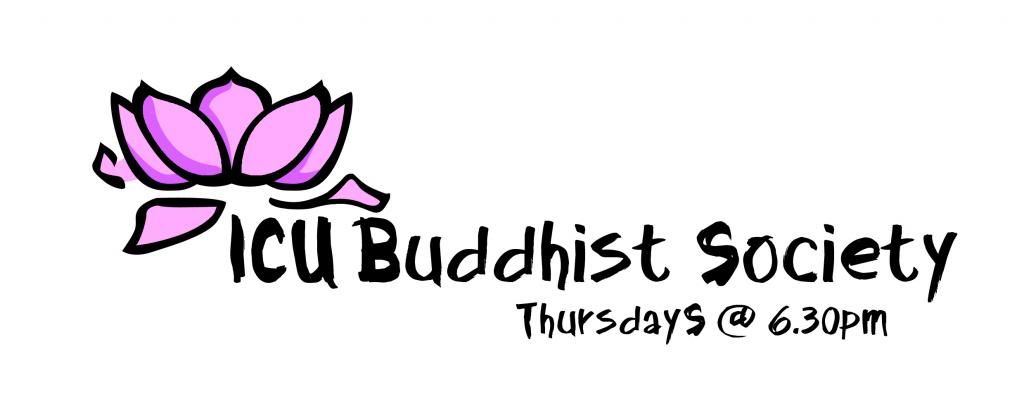Meditation or Dhyāna or Jhāna and BFoW #3
A
sharing by Assaji, written by an attendee.
Meditation is usually misunderstood by many as a session to contemplate, to blank out or to bring oneself to a mental holiday. But the type of meditation, founded by the Buddha, or a state of vipassana is not a temporary solution to our daily stressful life. It is a method that brings us to a higher mental state which allows us to cope better with future problems.
Two types of meditation
Vipassana - distinct(vi) observation(passana). It is encouraged to be practice together with Samatha. When one is in the state of vipassan, one is able to accept noise as noise and the changes to the environment or our body as the changes itself - being aware yet not disturbed or wavered by these changes. Soon, you will find how all these disturbances are impermanent and the state of peace during meditation can be brought out into our working life. People may be harsh on you but you will gain the ability to separate the content from the emotions, using the former to improve on yourself and ignoring the latter.
Some people in the west tends to practice meditation without the understanding of the dhamma while some in the east perform rituals (check out buddhist fact of the week #3 below!) without much application of the dhamma to their life or having regular meditation. Both are not advised as they do not help with the improvement to our mental state.
Below are a few types of meditation.
- meditation on breath
Meditation is usually misunderstood by many as a session to contemplate, to blank out or to bring oneself to a mental holiday. But the type of meditation, founded by the Buddha, or a state of vipassana is not a temporary solution to our daily stressful life. It is a method that brings us to a higher mental state which allows us to cope better with future problems.
Two types of meditation
Samatha - usually associated
with mindfulness. calmness. clearing your mind, focusing on the breath. most
people regardless of religion usually practice this state of meditation
Vipassana - distinct(vi) observation(passana). It is encouraged to be practice together with Samatha. When one is in the state of vipassan, one is able to accept noise as noise and the changes to the environment or our body as the changes itself - being aware yet not disturbed or wavered by these changes. Soon, you will find how all these disturbances are impermanent and the state of peace during meditation can be brought out into our working life. People may be harsh on you but you will gain the ability to separate the content from the emotions, using the former to improve on yourself and ignoring the latter.
Eventually,
meditation will help to reach a point where the mind is free from the five hindrances —
craving, aversion, sloth, agitation and doubt
Some people in the west tends to practice meditation without the understanding of the dhamma while some in the east perform rituals (check out buddhist fact of the week #3 below!) without much application of the dhamma to their life or having regular meditation. Both are not advised as they do not help with the improvement to our mental state.
Below are a few types of meditation.
- meditation on breath
-
walking meditation
-
mantra meditation
11 benefits to practicing Metta (loving
kindness meditation:
1.
You will sleep easily
2.
You will wake easily
3.
You will have pleasant dreams
4.
People will love you
5.
Devas (gods or angels) and animals will love you
6. Devas will protect you
7.
External dangers, such as poisons, weapons, and fire, will not harm you
8.
Your face will be radiant
9.
Your mind will be serene
10.
You will die unconfused
11.
You will be re-born in happy realms
(from Anguttara Nikaya 11.16)
(from http://www.dhammawiki.com)
Quick sharing: I was
at a bowling competition this weekend and i manage to make it to the
semi-finals for the first time. It was very stressful as all eyes were down to
the 2 competing trios team. Semi-final and finals were in the form of
step-ladder, hence it was all down to one game each, adding more stress to
every player. At that moment, I tried to practice mantra meditation. It was the
most time-effective meditation in the noisy environment. I manage to cope with
the mental stress and bowl my way into the finals, winning the highest game for
female in the category I participate in. This goes to show that meditation can
be a quick fix for our lives especially when we have so much emotions built up
within ourselves that we can not handle it alone. Different meditation works
differently with different people and under different situations.
So do take some time
each week to try them all to find out what is best for you!
Are you a victim of the Ten defilements that cause negativity in oneself?
Buddhist Fact of the Week #3
1. The Pali canon's Sutta Pitaka identifies ten "fetters of becoming"
2. belief in a self (Pali: sakkāya-diṭṭhi)
3. doubt or uncertainty, especially about the teachings (vicikicchā)
4. attachment to rites and rituals (sīlabbata-parāmāso)
5. sensual desire (kāmacchando)
6. ill will (vyāpādo or byāpādo)
7. lust for material existence, lust for material rebirth (rūparāgo)
8. lust for immaterial existence, lust for rebirth in a formless realm (arūparāgo)
9. conceit (māna)
10. restlessness (uddhacca)
11. ignorance (avijjā)
Another version of Ten defilements
1. sensual lust (Pali: kāma-rāga)
2. anger (paṭigha)
3. conceit (māna)
4. views (diṭṭhi)
5. doubt (vicikicchā)
6. attachment to rites and rituals (sīlabbata-parāmāsa)
7. lust for existence (bhava-rāga)
8. jealousy (issā)
9. greed (macchariya)
10. ignorance (avijjā).
Sadhu! Sadhu! Sadhu!
Sadhu! Sadhu! Sadhu!


0 Comments:
Post a Comment
Subscribe to Post Comments [Atom]
<< Home